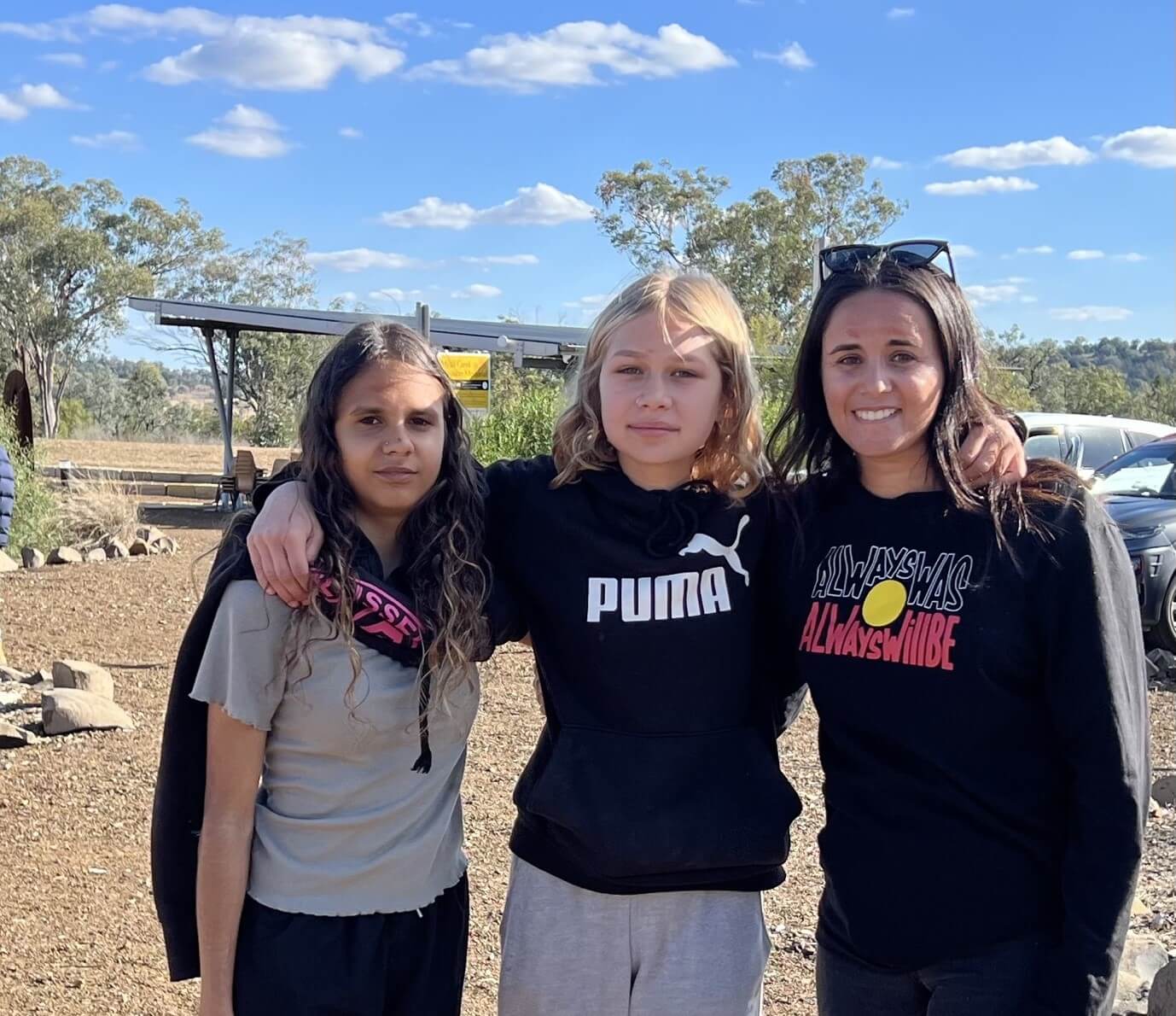Interview with Mekayla Cochrane about JR Moree Youth Camp

In June, Just Reinvest NSW in Moree teamed up with Flyabout, Gamilaraay Next Generation and Gwenda Stanley to deliver an On Country camp in support of healing the current and past traumas that are having an impact on Gomeroi people. In this interview JR Youth Lead in Moree, Mekayla Cochrane explains what happened:
What was the purpose of the camp?
The purpose of the camp was to provide an opportunity for young people to connect to country and to learn how to incorporate cultural practices into their lifestyle. It was also to provide them with experiences, to get them out of Moree for a few days. We were targeting people caught up in the criminal justice system and those young people battling drug use and where peer support is not the best, taking them away from that situation.
It was also an opportunity to learn who the knowledge-holders are in the community. There’s not that many people who hold that knowledge of culture in the community. A lot of young people don’t have elders in their family – by exposing them to knowledge we hope that this will continue the practice of culture.
How does being exposed to cultural practices help?
It shows them how to support their mental health and wellbeing, for example. Being On Country fulfils me mentally and is part of my wellbeing, so I hope that this camp helps their mental health to be better.
Where did you go, what did you do?
We went to Copeton Dam campgrounds about and hour and half out of Moree.
How did it go – any highlights?
Some of the young kids were really into it, and some couldn’t come because they’ve never been camping and didn’t feel confident, however going to Myall Creek and the site of the massacre was a real highlight. Sitting there, for an hour or two and some of the old people sharing their memories of what happened that day. There was a young fella who danced, no shame, he was in his ‘feels’ if you know I mean.
At one stage we were walking up the hill to site of the massacre, and there was one boy who was asking me, where are we going, what is this? And when I told him this was the place where they killed everyone because they were black, he was like, ‘No way!’ – mind blown, he went back down to the bottom of the hill and started reading all the signs that described the history – this was after listening to elders talk about it for two hours, but it hadn’t sunk in until then. I literally saw his mind go ‘click’ about what happened at Myall Creek and why they were there.
How was the camp received by the community? How do they reinforce justice reinvestment initiative in Moree?
I think the camps are well received by the community for both participants and facilitators, young people and parents – I think its seen as a ‘rite of passage’. We don’t get a lot of direct feedback but the police who are starting to meet each week with parents of young offenders in Moree, heard second-hand from one of the parents about the camp and how good it was, so the police have invited me to join their meetings. I have also seen people’s facebook statuses talking about the facilitator Gwenda Stanley and how excited they are to go with her and parents describing it to their kids that way.
What is the plan now for other camps?
I have hopes for the camp to be consistently ongoing, and for it to be an early intervention measure for when young people get on the police’s radar. There have been other camps from Moree in the past, but they have been one-off random – for JR its our first youth camp and there should be more.
Caption: Mekayla Chochrane, Youth Lead JR Moree with some of the young participants at the youth camp at Copeton Dam.